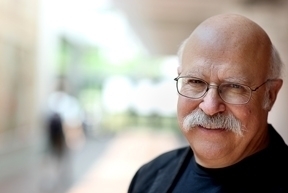Summary

Scientific activity, like any other human practice, is rule-governed, and there have been many attempts to say what the rules of right conduct are. Yet, through history and between a range of scientific practices, articulations of those rules have varied. Rules that have been celebrated as leading to good outcomes have, at other times and in other contexts, been warned against as leading to epistemic vice. How can one think of science as governed by rules when those rules are evidently unstable? What accounts for the appeal of any one version of the rules for right scientific conduct?
Speaker
Steven Shapin is Franklin L. Ford Research Professor of the History of Science. He joined Harvard in 2004 after previous appointments as Professor of Sociology at the University of California, San Diego, and at the Science Studies Unit, Edinburgh University. His books include Leviathan and the Air-Pump: Hobbes, Boyle, and the Experimental Life (Princeton University Press, 1985 2011; with Simon Schaffer), A Social History of Truth: Civility and Science in Seventeenth-Century England (University of Chicago Press, 1994); The Scientific Revolution (University of Chicago Press, 1996; now translated into 16 languages); Wetenschap is cultuur (Science is Culture) (Amsterdam: Balans, 2005; with Simon Schaffer); The Scientific Life: A Moral History of a Late Modern Vocation (University of Chicago Press, 2008); Never Pure: Historical Studies of Science as if It Was Produced by People with Bodies, Situated in Time, Space, Culture and Society, and Struggling for Credibility and Authority (Baltimore: Johns Hopkins University Press, 2010), and several edited books. He has published widely on the historical sociology of scientific knowledge, and his current research interests include historical and contemporary studies of dietetics, the changing languages and practices of taste, the nature of entrepreneurial science, and modern relations between academia and industry. He writes regularly for the London Review of Books and has written for The New Yorker. He is a Fellow of the American Academy of Arts and Sciences, and his awards include the J.D. Bernal Prize of the Society for Social Studies of Science (for career contributions to the field), the Ludwik Fleck Prize of 4S and the Robert K. Merton Prize of the American Sociological Association (for A Social History of Truth), the Herbert Dingle Prize of the British Society for the History of Science (for The Scientific Revolution), a Guggenheim Fellowship, and a Fellowship at the Center for Advanced Study in the Behavioral Sciences. With Simon Schaffer, he was the 2005 winner of the Erasmus Prize, conferred by HRH the Prince of Orange of the Netherlands, for contributions to European culture, society, or social science. In 2014, he received the Sarton Medal, the highest honor of the History of Science Society, in recognition of a “lifetime of scholarly achievement.”
Free and open to the public. Reception following.
This lecture is made possible by support from the Templeton Religion Trust and the Notre Dame John J. Reilly Center.
Originally published at ctshf.nd.edu.